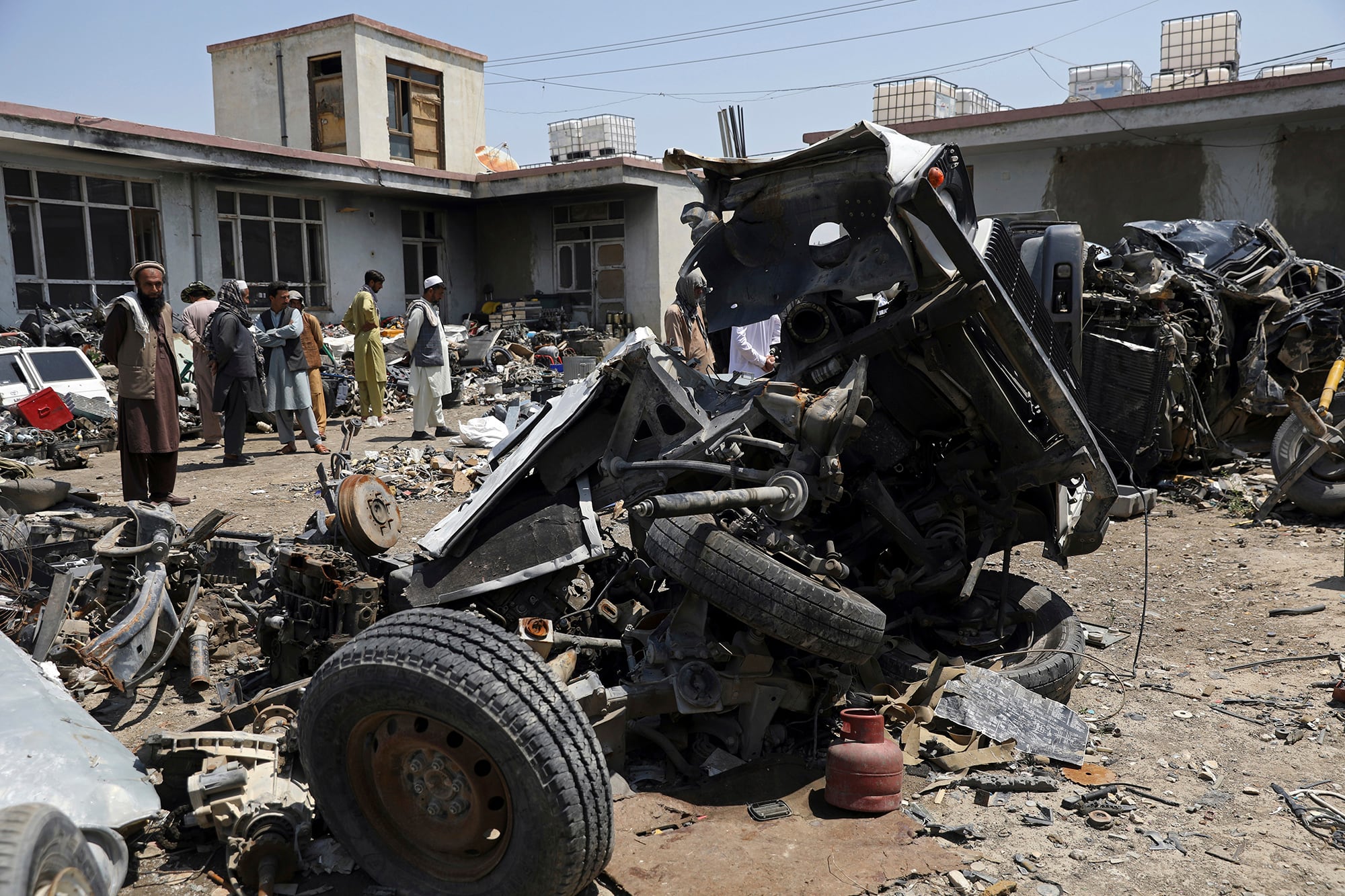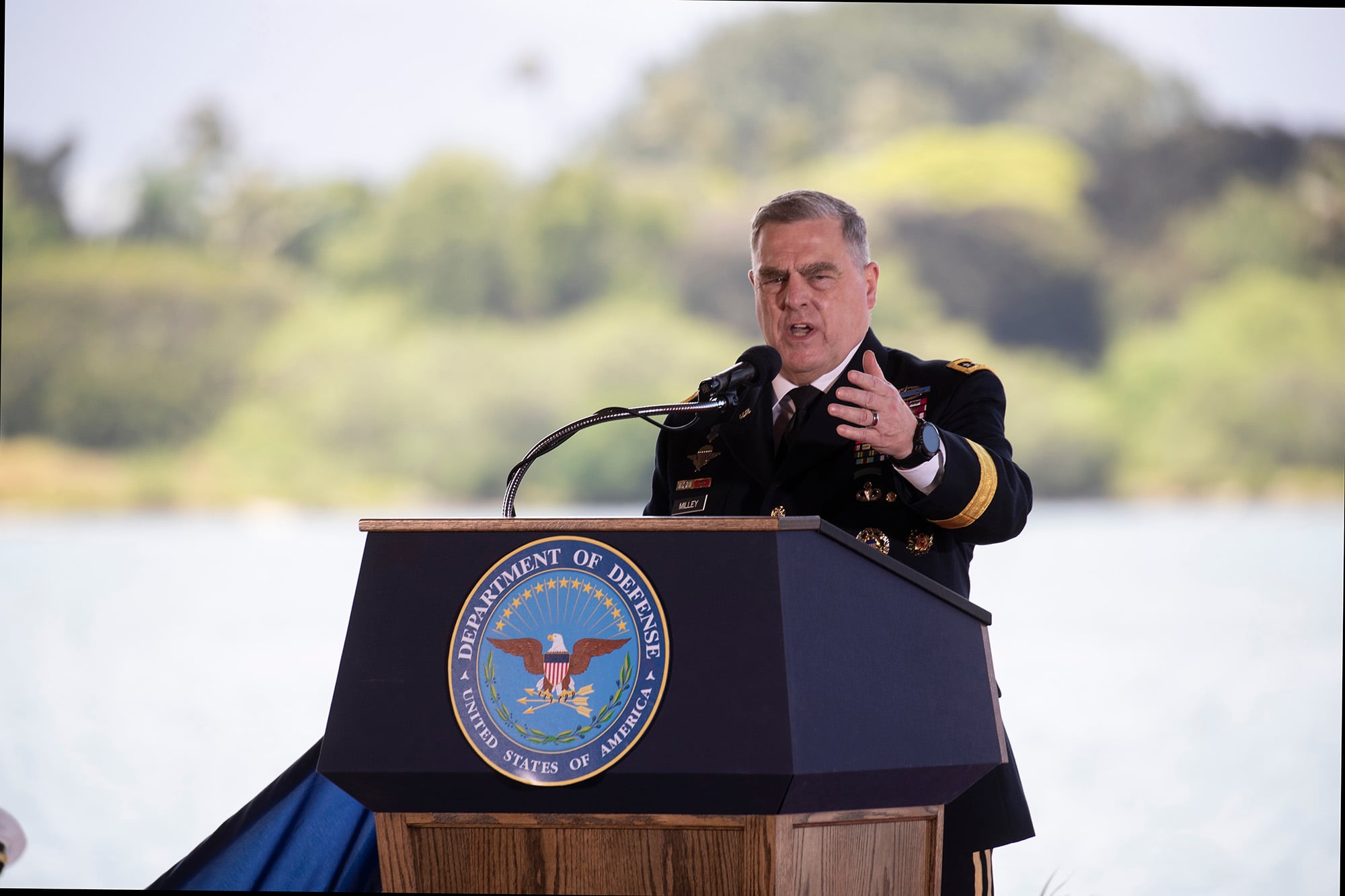A bipartisan group of lawmakers is urging the White House to begin transporting Afghan allies “immediately” to a safe zone such as Guam ahead of the full withdrawal of U.S. forces from the war-torn country later this year.
“No U.S. entity — to include the Department of Defense, Department of State, USAID, et al. — has the ability or authority to protect them in Afghanistan after our withdrawal,” the group of lawmakers wrote in a letter to President Joe Biden on Friday.
“It would be a moral failure to transfer the responsibility to protect our Afghan partners onto the shoulders of the Afghan Government. The time is now to honor our promise.”
The group of 22 lawmakers includes several veterans who served overseas alongside foreign interpreters and security volunteers. It also includes Guam’s representative in Congress, Michael San Nicolas, whose island has been discussed as a possible transitioning point for thousands of evacuees who may eventually be admitted to the mainland United States.
Lawmakers noted that the island has been such a transition zone before; in 1975, about 130,000 Vietnamese refugees were evacuated there when U.S. military forces left that country. The group asked administration officials to establish a task force to handle visa management, vaccination efforts and other logistical issues related to such a move.
RELATED

“If we fail to protect our allies in Afghanistan, it will have a lasting impact on our future partnerships and global reputation, which will then be a great detriment to our troops and the future of our national security,” the letter states.
White House officials have repeatedly promised to address the issue of the thousands of Afghan allies caught in the Special Immigrant Visas program, which can take more than three years to navigate.
Federal officials said 18,000 individuals are awaiting entry into the United States through the program, not including their spouses and children.
On Thursday, State Department spokesman Ned Price said officials are looking for ways to speed up that program, but also that diplomatic staff and facilities will remain in the country past the Sept. 11 military withdrawal date to help deal with those issues.
“Our embassy will remain, we will be able to continue processing,” he said. “And we will do that as quickly and efficiently as we can, knowing, again, the special responsibility that we have to these brave Afghans.”
RELATED

But lawmakers noted that once U.S. military forces are gone, Taliban forces and sympathizers will see the unprotected allies as easy targets.
Earlier this week, Italian officials announced plans to airlift about 500 allies and their family members out of Afghanistan in coming weeks, ahead of the concurrent withdrawal of NATO forces. In a statement Monday, Britain’s defense secretary announced similar measures.
U.S. Defense Department officials have deferred most questions on the topic to the State Department, which handles the SIV program. On Wednesday, spokesman John Kirby said that the agencies are working together to find solutions to the problem.
“The president has been clear: We have a moral obligation to these people,” he said. “He wants to take a fresh look at the SIV program to see how and to what degree it could be expanded and/or accelerated.”
He also acknowledged that military leaders “have put some planning resources” into the possibility of a mass evacuation of Afghan allies, but would not provide further details.
Leo covers Congress, Veterans Affairs and the White House for Military Times. He has covered Washington, D.C. since 2004, focusing on military personnel and veterans policies. His work has earned numerous honors, including a 2009 Polk award, a 2010 National Headliner Award, the IAVA Leadership in Journalism award and the VFW News Media award.




